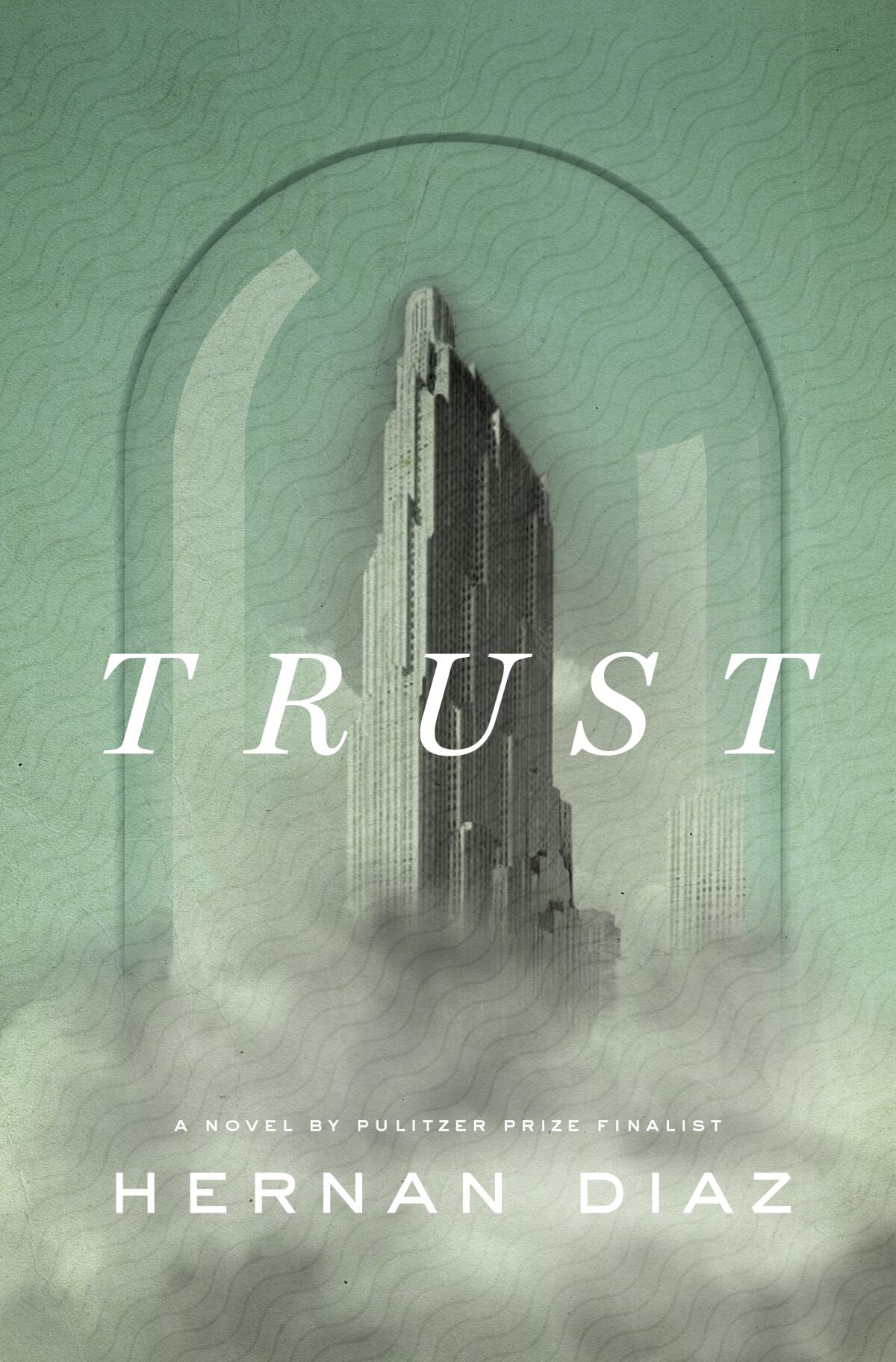Love among the ruins of Trump’s America in Zachary Lazar’s engrossing novel

- Share via
On the Shelf
Calle Uruguay
By Zachary Lazar
Catapult: 256 pages, $26
If you buy books linked on our site, The Times may earn a commission from Bookshop.org, whose fees support independent bookstores.
Halfway into Zachary Lazar’s fine paradox of a novel — a tale of renewal amid constant terror — a couple arrives in the Mexican city of Guanajuato. Once home to an immense silver mine, the place has a spooky feel — “a warren of streets with staircases …, a kind of catacomb.” There’s even a museum of mummies, since “something in the soil preserved dead bodies.”
Yet Christopher and Ana, the duo at the center of “The Apartment on Calle Uruguay,” have come to this gloomy place as an expression of love. Ana has business as a journalist based in Mexico City; Chris has no job to speak of and holds an American passport. Both are worldly, well into middle age, and both sense the need to explore their own catacombs and confront the bogeymen within.
Though Chris is the narrator, he’s been playing it close to the vest. He and Ana first became involved almost a year before their Mexican sojourn, in the novel’s opening pages. Out on the woodsy far tip of Long Island, the anti-Hamptons, Chris has been in retreat, and at first Ana’s touch seems to stir him no more than a dip in the local pond. His withdrawal feels earned, at least; in his “late forties or early fifties,” he won’t touch drugs and limits his teaching to a weekly seminar. To unpack his baggage will take time, till Guanajuato and beyond.
This meditative pace is new to Lazar, setting “Calle Uruguay” apart from his 2018 narrative of wrongful incarceration, “Vengeance” — its very title a raised fist. Still, this fifth novel never lapses into indifference. The narrator is ever-alert to the “friction” of his place in the U.S. as a mixed-race immigrant who looks “a little like Osama Bin Laden.” That friction has grown “worse now, since the election.”
“It’s never clear what turns a space into a home, and a life-project into a life,” writes Valeria Luiselli in her new novel, “Lost Children Archive.”
Trump’s election, in other words: The text never mentions 45 by name, but he’s a worse haunt than any mummy. Ana may be a bit younger, from Venezuela originally, but she recognizes the threat in Charlottesville’s August 2017 Unite the Right rally. That event prompts perhaps the first serious exchange between her and Chris. They read Baldwin together; they speak of the inhumanity at the Mexican border. The chill fingers of Immigration and Customs Enforcement even reach New York in a nightmare airport scene.

To share an ideology isn’t love, however. It’s a facsimile, like the toy turtle Ana and Chris discover along an island road, mistaking plastic for the real thing. Their attempt at a rescue is typical of their summer affair, goodhearted but light-handed. Then, however, Ana must return to Mexico, and so triggers something deeper in Chris. “I would walk around,” he admits, “with her name flashing like a marquee in my mind. But it also felt like my life had finally been stripped down and purified to just the hard dry essence.”
The crisp sensuality of the rhetoric isn’t new. From the first, the prose bristles with such nuggets, including scrumptious food writing. Still, here the narrator asserts a new forthrightness: the gumption to quit hiding and licking his wounds.
Chris once enjoyed fame as a painter, with one-man shows around New York. The mystery of why he abandoned the calling — and whether he might take up the brush again — unfolds with the same tantalizing deliberateness as the rest of his story. The man’s previous partner was Malika, a Black American, and she died somewhat mysteriously; both these experiences left their hooks in him. When he visits Malika’s brother, doing hard time in the Deep South, the story recalls “Vengeance,” with its prison focus, while also stirring up fresh fears about Trump’s America. Yet only after Chris travels to Mexico — specifically for Ana — do all the tangled roots of his mid-life paralysis come to light.
Ayad Akhtar, author of the new novel, “Homeland Elegies,” talks capitalism, Trump and literary tokenism with “Conditional Citizens” author Laila Lalami.
And only in Guanajuato, laid low by the inevitable stomach ailment of a gringo newcomer, does he open up about injuries still deeper. An Arab North African, he was brought to the States by a dancer mother hungry for fame. The woman’s self-absorption repeatedly put her son in peril.
Ana, listening, at once grasps the stakes of their game; she sees his pain and raises him. She too had a difficult mother and a homeland that left her badly scarred. The family had opposed the latest Venezuelan regime, and the daughter had caught the attention of the dictator’s thugs. That grim encounter, Chris realizes, had brought her into his life; “the whole point of Ana’s time in New York had been to try to move past what she was telling me now.”
Horrors lurk on all sides for these two. Both at some point come within a whisker of catastrophe. A recurrent stylistic device underscores the point, juxtaposing a moment of bliss with some simultaneous barbarism in a Caracas prison or along the Rio Grande. As Chris observes, “[I]t’s everything all at the same time.” Yet amid this inferno, in a kind of shared refugee status, these two struggle to nurture their last, best hope.
Their apartment on Calle Uruguay takes a long time to turn up, but at least for a while it promises the lovers sanctuary. Indeed, Lazar’s delay in explaining the title proves canny, heightening the tension that percolates beneath his evasions and digressions. It makes for suspense at once ingenious and compelling, rooted in a sympathy that both illuminates terrifying recesses and extends its healing touch across a pair of troubled continents.
A guide to the literary geography of Los Angeles: A comprehensive bookstore map, writers’ meetups, place histories, an author survey, essays and more.
Domini’s latest book is a memoir, “The Archeology of a Good Ragù.”
More to Read
Sign up for our Book Club newsletter
Get the latest news, events and more from the Los Angeles Times Book Club, and help us get L.A. reading and talking.
You may occasionally receive promotional content from the Los Angeles Times.











